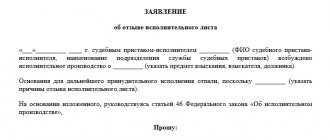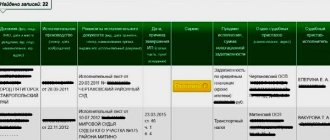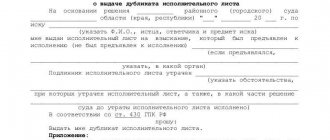In principle, it is possible to resolve the issue of alimony, but this will not be the final stage in receiving payments for the child. Thus, a court decision must be followed by an equally significant legal procedure - enforcement proceedings for the collection of child support. Unfortunately, not everyone knows and understands that at this stage unforeseen circumstances occur that may not work in favor of one of the parties to the case.
In this article we will help you understand the concepts in force for 2021 that relate to enforcement proceedings for alimony.
Legal acts regulating enforcement proceedings
If, before you get an appointment with a specialist from the Federal Bailiff Service (hereinafter referred to as the FSSP), you familiarize yourself with the regulations that they use in the course of their duties, you can ultimately count on effective cooperation in the sense of protecting your own interests.
Important! Before meeting with a bailiff, it is better to familiarize yourself with the documents that regulate their work. Ideally, it is worth making extracts from regulatory legal acts in order to appeal them during controversial situations.
So, it is worth familiarizing yourself with the following legislative acts:
- Federal Law “On Enforcement Proceedings”.
- Methodological recommendations regarding the procedure for fulfilling the requirements of enforcement documents on alimony.
- Decree of the Government of the Russian Federation, which concerns the list of types of wages and other income from which alimony payments are withheld.
Naturally, it is unlikely that you will be able to study these papers inside and out, but it is possible to read the main articles. So, it is worth familiarizing yourself with the rights and obligations of the parties, as well as the bailiff and the measures of influence on the official who is involved in the proceedings.
What's new in the law?
When it comes to alimony, the Federal Law “On Enforcement Proceedings” no longer refers to the Family Code to resolve these issues.
It is worth emphasizing that Chapter 11 is devoted to the issue of alimony in Federal Law 229. It sets out in as much detail as possible such aspects as the procedure for collecting alimony from the alimony payer and resolving the issue of paying arrears on alimony payments. In addition, other nuances are fully considered, such as: what responsibility does the employer bear in case of untimely dismissal of the alimony debtor? It is worth emphasizing that the Federal Law “On Enforcement Proceedings” No. 229 allows the alimony recipient to send or deliver a writ of execution, according to which the opening of enforcement proceedings is carried out. It must be provided to the employing company or to those persons who pay periodic payments to the alimony payer. Please note that the Federal Law “On Enforcement Proceedings” clearly defines the upper limit of alimony in such situations. The amounts cannot be higher than 25 thousand rubles.
The recipient of the alimony, together with the documentation - the basis on which the enforcement proceedings are based, provides an application indicating the bank details or address for the transfer of accrued funds. Additionally, you must indicate the full name of the alimony recipient, as well as details of the identity document. The TIN is also indicated.
Previously, in enforcement proceedings it was necessary to deal with the problem of the loss of writs of execution (sheets) by those employers who ceased their activities. This significantly complicated the movement of such documentation and made it impossible to track it. According to Federal Law 229, the document that serves as the basis for opening enforcement proceedings is retained in the production materials. Thus, for the execution of deductions, a resolution on enforcement proceedings is sent, and a copy of the writ of execution or other documentation is attached to it.
There are other aspects worth noting. Persons responsible for paying wages to the alimony payer are required to withhold a certain amount, which corresponds to the data of the writ of execution. The deductions themselves are made from the moment the documents are received.
Alimony is transferred to the alimony recipient within a three-day period after salary payment.
If the alimony payer changes the source of various incomes, job or moves, those persons who are involved in the payment of periodic payments should inform the bailiff or the alimony recipient about this fact, additionally sending a writ of execution with the necessary notes on the payments made and the penalties made.
It is worth paying special attention to Article 101 of Federal Law 229 “On Enforcement Proceedings”. It specifies a list of those incomes from which alimony and other penalties can be withheld and calculated. It must be emphasized that it is significantly broader than in the previous law.
Those who have an urgent question regarding the payment of alimony should also familiarize themselves with Article 102, which regulates the procedure for indexing alimony. According to this article, if the minimum wage is increased and alimony is collected in a fixed amount, the bailiff or the employer of the alimony payer carries out indexation, about which they issue an order or order. It is worth emphasizing that this provision concerns both an increase in the federal minimum wage and an increase in the cost of living in a specific region. In this case, the amount of alimony increases by the amount of the index of increase in the cost of living or the minimum wage.
Parties to enforcement proceedings
Enforcement proceedings for alimony provide for the following parties:
- The claimant is the one in whose favor the funds will be collected. It may also be a representative or proxy.
- The debtor is the one who has an obligation to make payments.
- A bailiff is a person who fulfills the requirements set out in a writ of execution.
- Other persons assisting in the execution of production. These could be translators, representatives, professionals of other profiles, etc.
All parties to enforcement proceedings have their own rights and obligations enshrined in current legislation.
What are the periodic payments?
Examples and explanations from the Review of Judicial Practice of the Supreme Court of the Russian Federation for the 4th quarter of 2013 (approved by the Presidium of the Supreme Court of the Russian Federation on June 4, 2014) will help you understand that the claimant’s claim is periodic in nature.
Thus, enforcement documents on the collection of periodic payments may contain instructions on the requirements and obligations of the debtor to periodically pay amounts or according to a specific schedule, in a specific amount or as a percentage. For example, about monthly collection;
- child support for minor children;
- life annuity;
- payments to compensate for harm caused by a decrease in the ability to work or the death of the victim;
- insurance amount;
- on the collection, according to the established schedule, of certain amounts to fulfill the debtor’s obligation.
The Supreme Court of the Russian Federation also notes that the one-time nature of the claim against the debtor remains such despite the fact that the collected amount is repaid from periodically received income by the debtor - wages, pensions and others.
Procedure for initiating alimony proceedings
All necessary documents for the collection of alimony can be presented to the executor during the period for which the payments are awarded. What exactly needs to be done in order to initiate alimony proceedings, we will even consider step by step:
- First of all, you must have paper in your hands, on the basis of which the bailiff is empowered to begin proceedings.
- So, this can be a writ of execution that is issued by the court or a notarized contract (agreement) that the applicant and the alimony payer have concluded between themselves.
- At the next stage, you must definitely come to the FSSP authority at the debtor’s place of residence and show the document on alimony.
- After this, you will need to write an application to initiate enforcement proceedings for alimony in accordance with the established form, which you can find out about from a specialist.
- Having received your application, the bailiff must make a decision within 1 day by which he will either initiate enforcement proceedings or refuse you. The resolution to initiate enforcement proceedings for alimony will be the main document for collection.
Attention! If you have lost a writ of execution, which is the only basis for enforcement proceedings, it can only be restored by issuing a duplicate, which is what the court does.
Also a very important point that should not be overlooked is that the bailiffs must make every effort to personally serve the relevant decree on the debtor. In addition, this is necessary because the debtor must be warned about the criminal liability that may arise in case of evasion of child support payments.
A sample statement of claim to initiate enforcement proceedings for alimony can be downloaded here
Issuance of the sheet to the claimant
After a positive court decision is made, the plaintiff will be able to receive the original writ of execution. If the plaintiff is unable to appear for the document on his own, or to send his representative to the court, the document will be sent to him by mail to the address specified in the statement of claim.
By the way, according to the law, the plaintiff has the right to ask the court not to issue a writ of execution, but to independently send it in the form of an electronic document via the Internet to the SSP at the defendant’s place of residence.
Problems of enforcement proceedings
Unfortunately, even when the applicant has received a court decision to receive alimony from the debtor and has achieved the start of enforcement proceedings, events still arise at one or another subsequent stage that you did not expect and will end with the fact that there will still be no payments. We are talking about problems that may arise at the stage of enforcement proceedings for alimony. Let's look at them in detail:
- the debtor evades obligations to pay child support. A lot can happen here: the debtor will change his last name or first name; bailiffs will be faced with the problem of determining the debtor’s place of residence; the debtor will hide his place of work or source of income; the debtor will transfer the property to other persons in order to avoid foreclosure on the property, etc.;
- the official performs his duties in bad faith. Oddly enough, the bailiff can also contribute to the fact that the case will stand still, for example, through inaction or through unlawful acts.
If difficulties at the stage of enforcement proceedings are caused by the actions of the debtor, legal methods of pressure can be exerted on him, in particular, bringing him to criminal or administrative liability. However, in this case it will be necessary to prove the fact that there are violations of one kind or another on his part. By the way, such actions can be performed by both the bailiff and the applicant.
If the process is “slowed down” by an official, certain sanctions can also be applied to him. Thus, the applicant has every right to file a complaint against an unscrupulous employee with a higher body of the FSSP, draw up a complaint addressed to the prosecutor, or write an administrative statement of claim.
However, as practice shows, in the event of violations by the bailiff service, often only a complaint to a higher authority is enough, after which the bailiff’s work miraculously improves and becomes effective.
More about indexing
The indexation of alimony itself is provided for by the Family Code. Its purpose is to protect alimony payments from the process of inflation. Another purpose of indexation is to prevent repeated court appeals to recalculate the amount of alimony if they are paid in a fixed amount. In this case, indexation is carried out both when alimony is withheld in accordance with a court order, and when a voluntary agreement is concluded. According to new legislative norms, such indexation can be carried out not only by a bailiff, but also by the accounting department or administration of the employer of the alimony payer.
It is worth emphasizing that the practice of collecting alimony in a fixed amount occurs when we are talking about payments to a spouse or elderly parents (disabled or incapacitated). Sometimes it is used to collect funds for the maintenance of children who have not reached the age of majority:
- with irregular income of the alimony payer;
- in the case when the alimony payer receives part of the income or all of it in foreign currency or its ruble equivalent;
- if the alimony payer has income or earnings.
Also, such a practice will be applied if it is difficult or impossible to collect funds for the maintenance of children in a shared ratio (as a percentage of income or earnings) or such a deduction violates the interests of the parties.
How to draw up an application for the resumption of enforcement proceedings
An application for the resumption of enforcement proceedings on alimony can be drawn up without difficulty, especially since a sample document can be found both on the Internet and at the FSSP office.
Let us dwell on the main aspects of drawing up an application. So, it is necessary to indicate the following data:
- Name and location of the local bailiff service authority.
- Information about the applicant and debtor, including contact details.
- A detailed description of when and on what basis alimony proceedings were initiated, for what reason it was suspended, and also why it needs to be resumed.
- Request to resume production.
- Necessary postal and bank details where alimony payments will be sent.
- Date of.
- Signature.
To submit such an application, it is necessary to eliminate the circumstances due to which the proceedings were stopped. You can find a complete list of these circumstances in the regulatory legal act, and specifically in Article 40 of the Law “On Enforcement Proceedings”.
To confirm the changes have occurred, you may need to find relevant evidence and attach it to your application.
A sample application for the resumption of enforcement proceedings for alimony can be downloaded here
Presentation of the sheet directly to the employer
If the payer’s place of work is known, then you can independently submit the sheet for execution to the organization’s accounting department.
To do this, you will need a written application drawn up in any form. It should contain:
- Information about the employee;
- Data of the writ of execution – number, date;
- Data about the collector, including bank details;
- Method of receiving funds.
Often women, when leaving their husbands, show pride and do not apply for alimony for quite a long time. The legislation takes this factor into account, and therefore, mothers raising children alone have the right at any time before the child reaches the age of majority, as well as within 3 years after that, to file a claim for the recovery of funds for their maintenance, and present a sheet for execution.
Grounds for termination of enforcement proceedings
If we talk about the grounds when enforcement proceedings can be terminated, they directly depend on how payments are collected: voluntarily or forcibly. Therefore, we will dwell on both options in detail.
Alimony is paid according to a court order
If payments are collected from a person pursuant to a court order, the collection must cease if one of the following circumstances occurs:
- Death of the payer or child.
- The child(ren) will reach 18 years of age.
- The fact of emancipation will be established. In the event that a child has reached the age of 16, and has his own official income, and there are no objections on the part of his parents in this regard, the court or guardianship authority has every reason to recognize such a person as legally competent, in particular, a citizen, possessing all rights and bearing corresponding responsibilities. It should be understood that the parents of such a child are relieved of the obligation to support him.
- Registration of marriage before reaching the age of majority. It also happens that for a minor child, due to certain circumstances, the marriageable age is reduced, and he gets married. According to current legislation, from this moment he acquires all rights and obligations as an adult. In this case, the parents are also not obliged to support him.
- Adoption of a child. If adoption takes place, the obligation to support the child must also be terminated.
- Disputing the fact of paternity. If the person who is ordered to pay alimony proves in court that he is not the biological parent of the child, penalties on this child will be terminated. However, if such a citizen knew that he was not related to his child, however, when registering the child in the registry office, he gave his consent to be indicated as a parent, the court will not satisfy such a claim and will leave the person with the obligation to pay child support for child maintenance.
Alimony is paid voluntarily
There are cases when one of the parents does not necessarily have to resolve the issue of child support with the help of the court. Thus, payments of funds for child support occur on a voluntary basis.
In this case, an agreement is concluded between people, which clearly indicates the amount of payments, the conditions for transferring funds, etc. such paper is drawn up exclusively in writing and is subject to mandatory registration with a notary with further certification.
Attention! What the parties agreed to in such an agreement must be strictly implemented.
However, there are grounds under which child support payments, according to the agreement, must stop:
- death of one of the parties to the agreement;
- expiration of the period for which the agreement was concluded. Thus, the parties to the agreement can set any period during which cash payments for child support will be made. However, it is necessary to understand that sooner or later any period will come to an end, which will mean the termination of the transfer of funds under the agreement. However, if the agreement has expired, the parties can extend the payments by concluding a new one;
- conditions specified in the text of the agreement. When concluding an agreement regarding child support payments, the parties may provide for certain conditions under which such legal relations may end. For example, a spouse may demand (indicate the relevant requirement in the agreement) to stop child support payments if his ex-wife remarries.
Start date for alimony payments
Many people mistakenly believe that alimony begins to accrue from the moment they contact the SSP or other organizations that pay money to the alimony payer and submit a writ of execution to them. However, it is not. The date of commencement of accrual of payments for the child is the date of receipt of the claim in court.
Therefore, when filing a statement of claim, it is recommended to transfer it directly to the court office against a signature, and not send it by mail. This is due to the fact that postal delivery takes a certain time, which is not subsequently included in the calculation of alimony payments.
Regardless of how long the trial lasts, whether it is appealed or postponed, from the moment the application is filed, the payer begins to accumulate a debt, which he will subsequently have to repay.
By the way, in some cases provided for by law, it is also possible to accrue alimony for the last three years preceding the date of filing the application with the court. To do this, the plaintiff must prove in court that he made attempts to collect alimony from the payer out of court.
Termination of proceedings by the bailiff
Termination of alimony proceedings is possible upon the occurrence of certain circumstances, which must be reported to the bailiff so that he can issue an appropriate ruling.
Such circumstances include:
- The child reaches 18 years of age.
- Registration of marriage before adulthood or emancipation. In such a case, you must additionally attach a copy of the emancipation or marriage to the application. If a person does not have these papers in his hands or does not have the opportunity to obtain them, he can apply for them.
- Death of the recipient of funds or their payer. Then you must provide paper confirming that you have measured your face.
- The occurrence of circumstances that were specified in the agreement. This happens in cases where funds are collected according to an agreement between the payer and the recipient of payments.
After the deadline for presenting the sheet has expired, the claimant has another 3 years
This is the statute of limitations during which alimony claims can also be made. At the same time, whenever the sheet is presented, collection must be made for the entire period of non-payment of alimony on it.
So, for example, if alimony was assigned to a child under 18 years of age, and after 16 years of age the payer stopped paying for him, then if he contacts the bailiffs, within 3 years after the end of the period for presenting the sheet, alimony for the period will be collected from him from 16 to 18 years old.
It is important to know that if collection is made from wages, then the law prohibits the withholding of funds from it in an amount exceeding 70%.
Termination of proceedings in court
Only the court can terminate collection and this happens when:
- adoption As a rule, payments cease to be collected from the moment the court issues the adoption order and it comes into force. All amounts collected during this period must be returned to the debtor. The parent may, at his own request, retain his rights in relation to the child and in such a case, payments will continue to be withheld;
- challenging the fact of paternity. If a case is being considered to challenge paternity, the payer simultaneously has the right to put forward a demand that his obligation to pay child support be removed. Such an application is submitted to the court only after the court decision on the absence of kinship between the child and the father has entered into force.
A sample application for termination of enforcement proceedings can be downloaded here
Validity period of the writ of execution for alimony
The general rule is that the period for presenting the sheet is three years from the date the court decision enters into legal force. However, in cases related to alimony and other regular payments, other dates are set.
Claims can be made throughout the entire period of existence of the obligations. For example, if the case concerns a minor child - until the age of 18 and an additional three years. In the case of financial support for a disabled spouse - until the ability to support oneself is restored, death or a new marriage.
However, the three-year period continues to apply. The general statute of limitations is added to the child's age of majority. This means that a parent can make a claim before the person turns 21.
Sometimes the right to receive alimony is valid indefinitely. This applies to children with disabilities, an incapacitated child who has already reached the age of majority, but continues to need financial assistance.
An adult child under 21 years of age can also submit a writ of execution. At the same time, he has the right to recover the entire amount that was not paid during his minority, as well as a penalty for each day of delay.
The role of bailiffs
To talk about what role bailiffs play in enforcement proceedings, it is worth understanding the issue of their actions. Thus, during the period of collection of alimony payments, bailiffs perform all actions aimed at ensuring that citizens fulfill their duties in good faith.
- At the initial stage, when submitting a writ of execution, the bailiff issues a resolution to begin work on collecting payments. The production period for the writ of execution is 3 days. The paper contains information about the amount of cash payments, the existence of debt, and also indicates the requirement to comply with the law imposed on the debtor.
- Next, the executor finds out where the debtor lives and officially works. In addition, there is a need to carry out work that would reveal the availability of additional income for the debtor. Information about the property is also collected. If a violation is established on the part of the enterprise where the debtor works, then the chief accountant and manager of the enterprise are held accountable.
- It happens that the debtor does not provide any information about his income. Then the bailiff takes as a basis the average earnings in the debtor’s region of residence and, taking this information into account, calculates the required amount.
- If the whereabouts of the debtor are unknown, the bailiff can organize efforts to find him.
- If there is a debt, the bailiff can sell the debtor's property through auction.
- The bailiff may apply to the court with a request to bring to criminal liability a debtor who has a significant debt in payments.
Application for suspension of enforcement proceedings
Enforcement proceedings begin with a writ of execution, since on the basis of this paper the bailiff can initiate it. However, the law provides for situations that create problems for the bailiff. In such cases, enforcement proceedings on alimony are suspended.
Enforcement proceedings are stopped for some time when:
- a claim is filed for the release of seized property;
- the property valuation is challenged;
- a dispute arises over the performance fee.
In addition, a bailiff or court has the right to make such a decision if the debtor:
- There is a need to resolve the issue of succession.
- The debtor's bank's license is revoked.
- Declared bankrupt.
- Participates in hostilities.
- During this period, he is undergoing treatment.
- He is in the army.
- He is listed as wanted.
In addition, there are times when proceedings may be suspended by decision of the judge:
- at the time of appealing a court decision;
- if the debtor is on a work trip;
- if there is an appeal against the actions of the bailiff;
- when an application for clarification of a court ruling is filed.
Important! These situations are approved at the legislative level in the Federal Law “On Enforcement Proceedings”.
An application for suspension of enforcement proceedings on alimony is submitted to the district or city court in which the bailiff performs his duties.
A sample application for suspension of enforcement proceedings can be downloaded here
The application indicates the persons who participate in the proceedings: the collector, the debtor and the bailiff.
Interests and problems
Having familiarized ourselves with the practice, we can conclude that any of the parties in alimony legal relations, in the process of enforcement proceedings, to one degree or another, may encounter certain difficulties.
This situation is caused by the fact that each person at this moment has different interests, which is why the process is labor-intensive and difficult. However, thanks to the current legislation, each party in practice can defend its own interests.
Enforcement proceedings:
- For the claimant: Interests: receiving alimony payments.
- Problems: late receipt of funds.
- Interests: retaining a position and avoiding administrative punishment.
- Interests: avoiding responsibility for non-compliance with payment obligations.
Federal Law of October 2, 2007 No. 229-FZ
RUSSIAN FEDERATION
THE FEDERAL LAW
About enforcement proceedings
Adopted by the State Duma on September 14, 2007
Approved by the Federation Council on September 19, 2007
(As amended by federal laws dated May 13, 2008 No. 66-FZ, dated December 30, 2008 No. 306-FZ, dated June 3, 2009 No. 106-FZ, dated July 19, 2009 No. 205-FZ, dated September 27, 2009 No. 225-FZ, dated September 27, 2009 No. 226-FZ, dated December 17, 2009 No. 325-FZ, dated July 27, 2010 No. 213-FZ, dated February 7, 2011 No. 8-FZ, dated April 21, 2011 No. 71-FZ, dated June 27, 2011 No. 162-FZ, dated July 11, 2011 No. 196-FZ, dated July 18, 2011 No. 225-FZ, dated July 18, 2011 No. 226-FZ, dated November 21, 2011 No. 327-FZ, dated November 28, 2011 No. 336-FZ, dated 30.11.2011 No. 363-FZ, dated 03.12.2011 No. 383-FZ, dated 03.12.2011 No. 389-FZ, dated 06.12.2011 No. 401-FZ, dated 06.12.2011 No. 405-FZ, dated 06.12.2011 No. 410 -FZ, dated December 7, 2011 No. 415-FZ, dated July 28, 2012 No. 133-FZ, dated July 28, 2012 No. 144-FZ, dated April 5, 2013 No. 33-FZ, dated April 5, 2013 No. 49-FZ, dated July 23 .2013 No. 206-FZ, dated December 21, 2013 No. 358-FZ, dated December 21, 2013 No. 379-FZ, dated December 28, 2013 No. 383-FZ, dated December 28, 2013 No. 441-FZ, dated March 12, 2014 No. 34- Federal Law, dated 05.05.2014 No. 126-FZ, dated 07.21.2014 No. 216-FZ, dated 14.10.2014 No. 307-FZ, dated 22.10.2014 No. 315-FZ, dated 22.12.2014 No. 432-FZ, dated 29.12. 2014 No. 476-FZ, dated 03/08/2015 No. 23-FZ, dated 03/08/2015 No. 40-FZ, dated 03/08/2015 No. 41-FZ, dated 03/08/2015 No. 57-FZ, dated 04/06/2015 No. 82-FZ , dated June 29, 2015 No. 154-FZ, dated June 29, 2015 No. 186-FZ, dated June 29, 2015 No. 210-FZ, dated November 28, 2015 No. 340-FZ, dated December 29, 2015 No. 391-FZ, dated December 29, 2015 No. 393-FZ, dated December 30, 2015 No. 425-FZ, dated December 30, 2015 No. 444-FZ, dated March 9, 2016 No. 66-FZ, dated March 30, 2016 No. 80-FZ, dated May 1, 2016 No. 135-FZ, dated 07/03/2016 No. 274-FZ, dated 07/03/2016 No. 326-FZ, dated 07/03/2016 No. 360-FZ, dated 12/28/2016 No. 492-FZ, dated 05/28/2017 No. 101-FZ, dated 07/18/2017 No. 176-FZ, dated July 26, 2017 No. 190-FZ, dated July 26, 2017 No. 212-FZ, dated July 29, 2017 No. 236-FZ, dated November 14, 2017 No. 321-FZ, dated December 5, 2017 No. 382-FZ, dated 12/31/2017 No. 486-FZ, dated 03/07/2018 No. 48-FZ, dated 04/23/2018 No. 102-FZ, dated 06/04/2018 No. 133-FZ, dated 08/03/2018 No. 307-FZ, dated 11/28/2018 No. 451 -FZ, dated December 27, 2018 No. 514-FZ, dated December 27, 2018 No. 528-FZ, dated December 27, 2018 No. 539-FZ, dated February 21, 2019 No. 12-FZ, dated March 6, 2019 No. 24-FZ, dated July 26 .2019 No. 197-FZ, dated 08/02/2019 No. 287-FZ, dated 10/01/2019 No. 328-FZ, dated 11/12/2019 No. 375-FZ, dated 12/02/2019 No. 402-FZ, dated 12/27/2019 No. 454- Federal Law, dated 06/08/2020 No. 166-FZ, dated 07/31/2020 No. 259-FZ, dated 07/31/2020 No. 289-FZ, dated 12/08/2020 No. 429-FZ, dated 12/22/2020 No. 442-FZ)
Chapter 1. Basic provisions
Article 1. Scope of this Federal Law
1. This Federal Law determines the conditions and procedure for the forced execution of judicial acts, acts of other bodies and officials who, in the exercise of powers established by federal law, are given the right to impose on foreign states, individuals (hereinafter also referred to as citizens), legal entities, the Russian Federation, subjects of the Russian Federation, municipalities (hereinafter also referred to as organizations) are obliged to transfer funds and other property to other citizens, organizations or the relevant budgets, or to perform certain actions in their favor or to refrain from performing certain actions. (As amended by Federal Law No. 393-FZ dated December 29, 2015)
2. The conditions and procedure for the execution of judicial acts on the transfer to citizens and organizations of funds from the corresponding budget of the budget system of the Russian Federation are established by the budget legislation of the Russian Federation.
3. The conditions and procedure for the execution of individual judicial acts, acts of other bodies and officials may be established by other federal laws. (Part introduced - Federal Law dated 04/05/2013 No. 33-FZ)
Article 2. Objectives of enforcement proceedings
The objectives of enforcement proceedings are the correct and timely execution of judicial acts, acts of other bodies and officials, and in cases provided for by the legislation of the Russian Federation, the execution of other documents in order to protect the violated rights, freedoms and legitimate interests of citizens and organizations, as well as in order to ensure the fulfillment of obligations under international treaties of the Russian Federation. (As amended by Federal Law dated May 5, 2014 No. 126-FZ)
Article 3. Legislation of the Russian Federation on enforcement proceedings
1. The legislation of the Russian Federation on enforcement proceedings is based on the Constitution of the Russian Federation and consists of this Federal Law, Federal Law of July 21, 1997 No. 118-FZ “On Compulsory Enforcement Bodies of the Russian Federation” (hereinafter referred to as the Federal Law “On Compulsory Enforcement Bodies of the Russian Federation”) Federation") and other federal laws regulating the conditions and procedure for the compulsory execution of judicial acts, acts of other bodies and officials. (As amended by Federal Law dated October 1, 2019 No. 328-FZ)
2. The norms of federal laws governing the conditions and procedure for the compulsory execution of judicial acts, acts of other bodies and officials must comply with this Federal Law.
3. On the basis of and in pursuance of this Federal Law, the President of the Russian Federation and the Government of the Russian Federation adopt regulatory legal acts on issues of ensuring enforcement proceedings.
4. If an international treaty of the Russian Federation establishes rules other than those provided for by the legislation of the Russian Federation on enforcement proceedings, then the rules of the international treaty apply.
5. Decisions of interstate bodies adopted on the basis of the provisions of international treaties of the Russian Federation in their interpretation, contrary to the Constitution of the Russian Federation, are not subject to execution in the Russian Federation. Such a contradiction may be established in the manner prescribed by federal constitutional law. (Part introduced - Federal Law No. 429-FZ dated 08.12.2020)
Article 4. Principles of enforcement proceedings
Enforcement proceedings are carried out on the principles:
1) legality;
2) timeliness of execution of enforcement actions and application of enforcement measures;
3) respect for the honor and dignity of a citizen;
4) the inviolability of the minimum property necessary for the existence of the debtor-citizen and members of his family;
5) correlation between the scope of the claimant’s demands and enforcement measures.
Article 5. Compulsory enforcement authorities
1. Compulsory execution of judicial acts, acts of other bodies and officials in the manner established by this Federal Law is entrusted to the Federal Bailiff Service and its territorial bodies. (As amended by Federal Law dated April 5, 2013 No. 33-FZ)
2. The direct implementation of functions for the forced execution of judicial acts, acts of other bodies and officials is assigned to bailiffs of structural divisions of the Federal Bailiff Service and bailiffs of structural divisions of territorial bodies of the Federal Bailiff Service (hereinafter referred to as the bailiff units). (As amended by Federal Law dated April 5, 2013 No. 49-FZ)
3. The powers of bailiffs are determined by this Federal Law, the Federal Law “On Compulsory Enforcement Bodies of the Russian Federation” and other federal laws. (As amended by Federal Law dated October 1, 2019 No. 328-FZ)
4. In order to ensure the forced execution of judicial acts, acts of other bodies and officials, as well as the exchange of information in electronic form, electronic documents with government bodies, other bodies, state extra-budgetary funds, organizations, persons participating in enforcement proceedings, the Federal Service bailiffs use state information systems. (Part introduced - Federal Law dated July 3, 2016 No. 274-FZ)
Article 6. Mandatory requirements of the bailiff
1. The legal requirements of a bailiff are mandatory for all state bodies, local governments, citizens and organizations and are subject to strict compliance throughout the entire territory of the Russian Federation.
2. In case of failure to comply with the legal requirements of the bailiff, he will apply the measures provided for by this Federal Law.
3. Failure to comply with the legal requirements of the bailiff, as well as obstruction of the bailiff’s functions of executing judicial acts, acts of other bodies and officials shall entail liability under the legislation of the Russian Federation.
Article 61. Data bank in enforcement proceedings
1. The Federal Bailiff Service creates and maintains, including in electronic form, a data bank containing information necessary for the implementation of tasks for the enforcement of judicial acts, acts of other bodies and officials (hereinafter referred to as the data bank).
2. The procedure for creating and maintaining a data bank is determined by the chief bailiff of the Russian Federation.
3. The following information contained in the data bank is publicly available:
1) date of adoption of a judicial act, act of another body or official;
2) type of executive document, its number, name of the body that issued the executive document; (As amended by Federal Law No. 34-FZ dated March 12, 2014)
3) date of initiation of enforcement proceedings;
4) number of enforcement proceedings;
5) name of the debtor (for citizens - last name, first name, patronymic (if any), date of birth, place of birth; for organizations - name and address indicated in the unified state register of legal entities, actual address); (As amended by federal laws dated July 23, 2013 No. 206-FZ, dated November 28, 2018 No. 451-FZ)
6) the requirement contained in the executive document, with the exception of the requirement contained in the executive document issued on the basis of a judicial act, the text of which, in accordance with the legislation of the Russian Federation, is not subject to posting on the Internet, and data about the claimant;
61) the amount of outstanding debt under the writ of execution; (Clause introduced - Federal Law dated March 12, 2014 No. 34-FZ)
7) the name and address of the bailiff department in which enforcement proceedings were initiated (conducted);
 information about the search for the debtor, his property or the search for a child (for a child - last name, first name, patronymic (if any) and year of birth);
information about the search for the debtor, his property or the search for a child (for a child - last name, first name, patronymic (if any) and year of birth);
9) information about the return of the enforcement document to the recoverer on the grounds provided for in paragraphs 3 and 4 of part 1 of Article 46 of this Federal Law, or on the completion of enforcement proceedings on the grounds provided for in paragraphs 6 and 7 of part 1 of Article 47 of this Federal Law. (Clause introduced - Federal Law dated March 12, 2014 No. 34-FZ)
4. The information specified in part 3 of this article is publicly available until the day of completion or termination of enforcement proceedings, with the exception of data on the search for the debtor, his property or the search for a child, which are publicly available until the discovery of these persons or property, as well as information about the return executive document to the claimant on the grounds provided for in paragraphs 3 and 4 of part 1 of Article 46 of this Federal Law, or on the completion of enforcement proceedings on the grounds provided for in paragraphs 6 and 7 of part 1 of Article 47 of this Federal Law, which are publicly available for three years from the date of completion enforcement proceedings. (As amended by Federal Law No. 34-FZ dated March 12, 2014)
5. From the date of initiation of enforcement proceedings, the information necessary to collect the debt under the writ of execution is sent by the Federal Bailiff Service to the State Information System on state and municipal payments in the manner and within the time frame provided for in Part 5 of Article 213 of Federal Law No. 210 of July 27, 2010 -FZ “On the organization of the provision of state and municipal services.” A bank, other credit organization, federal postal service organization, other bodies and organizations through which funds are paid to repay debts under enforcement proceedings are required to send information about their payment to the State Information System on state and municipal payments in the manner and within the time limits specified. provided for by Part 4 of Article 213 of the Federal Law of July 27, 2010 No. 210-FZ “On the organization of the provision of state and municipal services.” (Part introduced - Federal Law dated 03/08/2015 No. 41-FZ; as amended by Federal Law dated 07/29/2017 No. 236-FZ)
(Article introduced - Federal Law dated July 11, 2011 No. 196-FZ)
Article 7. Bodies, organizations and citizens fulfilling the requirements contained in judicial acts, acts of other bodies and officials
1. In cases provided for by federal law, the requirements contained in judicial acts, acts of other bodies and officials, are fulfilled by bodies, organizations, including state bodies, local governments, banks and other credit organizations, officials and citizens.
2. The bodies, organizations and citizens specified in Part 1 of this article fulfill the requirements contained in judicial acts, acts of other bodies and officials, on the basis of executive documents specified in Article 12 of this Federal Law, in the manner established by this Federal Law and other federal laws.
Article 8. Fulfillment of requirements contained in judicial acts, acts of other bodies and officials, banks and other credit organizations
1. A writ of execution on the collection of funds or their arrest may be sent to a bank or other credit organization directly by the recoverer.
2. Simultaneously with the writ of execution, the claimant submits an application to the bank or other credit organization, which indicates:
1) details of the recoverer’s bank account to which the collected funds should be transferred;
2) last name, first name, patronymic, citizenship, details of an identity document, place of residence or place of stay, taxpayer identification number (if available), details of the migration card and document confirming the right to stay (residence) in the Russian Federation of the claimant-citizen ;
3) name, taxpayer identification number or code of a foreign organization, state registration number, address of the claimant - a legal entity. (As amended by Federal Law No. 451-FZ dated November 28, 2018)
3. The representative of the claimant presents a document certifying his authority and the information specified in Part 2 of this article about the claimant and himself.
4. (Part no longer in force - Federal Law dated July 28, 2012 No. 144-FZ)
5. A bank or other credit organization servicing the debtor’s accounts fulfills the requirements contained in the executive document for the collection of funds or their arrest, taking into account the requirements provided for in Articles 99 and 101 of this Federal Law. (Part introduced - Federal Law No. 12-FZ dated 21.02.2019)
Article 81. Fulfillment of requirements of judicial acts by issuers and professional participants in the securities market
1. An executive document on debiting from a personal account or from a securities account of the debtor and on crediting issue-grade securities to a personal account or securities account of the collector (hereinafter referred to as the executive document on writing off securities) may be sent by the collector directly to the issuer if he independently carries out activities on maintaining the register of owners of such securities, or the holder of the register maintaining the register of owners of issue-grade securities on behalf of the issuer, or the depositary keeping records of the rights to the debtor's issue-grade securities, provided that the claimant has information about the securities available on the specified accounts of the debtor.
2. Simultaneously with the writ of execution on the write-off of securities, the claimant submits an application indicating the information provided for in clauses 2 and 3 of part 2 of article 8 of this Federal Law. The representative of the claimant submits a document certifying his authority and the information provided for in this article about the claimant and himself.
3. The executive document on the write-off of securities is subject to execution by the person who records the rights to the debtor's equity securities.
4. When transferring documents constituting the system for maintaining the register of owners of issue-grade securities, transferring issue-grade securities from a personal account to a securities account or from a securities account to a personal account, or from one depository to another depository, unexecuted or partially executed executive documents on the write-off of securities are transferred to a new person responsible for recording the rights to the debtor's issue-grade securities.
(Article introduced - Federal Law dated July 19, 2009 No. 205-FZ)
Article 9. Execution by persons paying periodic payments to a debtor-citizen of a judicial act, act of another body or official
1. A writ of execution on the collection of periodic payments, on the collection of funds not exceeding one hundred thousand rubles in the amount, may be sent to the organization or other person paying the debtor wages, pensions, scholarships and other periodic payments, directly by the collector. (As amended by Federal Law No. 539-FZ dated December 27, 2018)
2. Simultaneously with the writ of execution, the claimant submits a statement indicating:
1) details of the bank account to which funds should be transferred, or the address to which funds should be transferred;
2) last name, first name, patronymic, details of the identity document of the claimant-citizen;
3) name, taxpayer identification number or code of a foreign organization, state registration number, address of the claimant - a legal entity. (As amended by Federal Law No. 451-FZ dated November 28, 2018)
3. The representative of the claimant presents a document certifying his authority and the information specified in Part 2 of this article about the claimant.
4. The persons specified in part 1 of this article make indexation of periodic payments paid in order to compensate for harm caused to life or health, under a lifelong maintenance agreement and in other cases established by law, in the manner established by the legislation of the Russian Federation. These persons are required to issue an order (instruction) regarding such indexation. (Part introduced - Federal Law dated November 30, 2011 No. 363-FZ)
Article 10. Execution of judicial acts, acts of other bodies and officials in relation to foreign citizens, stateless persons, foreign states and foreign organizations
(Name as amended by Federal Law dated December 29, 2015 No. 393-FZ)
When executing judicial acts, acts of other bodies and officials on the territory of the Russian Federation in relation to foreign citizens, stateless persons, foreign states and foreign organizations, the provisions of this Federal Law apply to them. A foreign state enjoys immunity with respect to the execution of a court decision in accordance with Federal Law of November 3, 2015 No. 297-FZ “On jurisdictional immunities of a foreign state and property of a foreign state”









